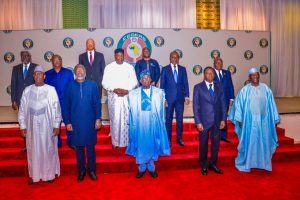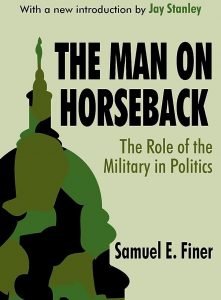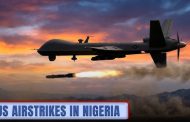By Murtala Muhammad PhD
As is already well known, the Presidential Guards in Niger Republic launched a coup and detained President Mohamed Bazoum and his family on the On July 26th, 2023,. Senior officers from various branches of the Defence and Security Forces (FDS) established a junta, named the National Council for the Safeguarding of the Homeland (CNSP), and declared a seizure of power. Public response varied, with initial demonstrations in support of Bazoum being dispersed by mutinous soldiers, subsequent upon demonstrations in support of the CNSP. By July 27th, the Nigerien Armed Forces joined the CNSP, citing their intention to avoid dangerous altercation and to protect the president and his family. The coup in Niger Republic does not bode well for democracy in West Africa. It adds to a disturbing pattern of military takeovers that have recently taken place in the region, presenting a significant setback for democratic progress.
The coup has been broadly condemned by ECOWAS, France, the United States, and the European Union. During a summit on August 2, 2023 in Abuja, ECOWAS considered military intervention and threatened sanctions to pressure the junta to reinstate Bazoum by giving a one-week ultimatum. The West African Economic and Monetary Union (UEMOA) imposed immediate sanctions and froze the Nigerien state assets. Burkina Faso, Guinea and Mali, declared their support for the Nigerien junta and expressed their refusal to apply any sanctions imposed on Niger. They declared that an armed intervention in Niger would be met with force. All the three countries including Niger were suspended from ECOWAS to form part of a military-led belt within the Sahel.

ECOWAS leaders
The question here is whether military intervention is a viable foreign policy option to return Niger to democracy? In the aftermath of the coup, events have unfolded speedily, revealing that a considerable number of state and non-state actors including politicians, civil society organisations, policy experts, citizens of Niger Republic and Nigeria have cautioned ECOWAS under the leadership of President Bola Ahmed Tinubu against the use of military force as a tool to restore democracy in Niger. Prof. Kamilu Fage, a foreign affairs expert, claims that the Nigeria’s military is already stretched with internal crises and a war could disrupt joint counterterrorism operations against terror groups in the region. Niger, neighbouring Nigeria, shares a 1,600km (1,000 mile) border that could see fighting spill over into neighbouring states.
Amidst the coup, there has been a rise in anti-French sentiment. The military junta is exploiting such sentiments to rally public support to avert condemnation. An estimated 30,000 people were invited to a stadium in the capital, Niamey, to show solidarity with the putschists. Some of the protesters were hoisting Russian and Nigerien flags. Nigeriens support the coup plotters, viewing them as saviours who will liberate their country from foreign dominance and exploitation of its resources. It is interesting that both Bazoum and the coupists have been expressing their desire to delink Niger from France. Bazoum had entertained the idea of making Niger to independently print its own currency and opt out of the Franc Zone. He also alluded to working closely with Nigeria to the mutual benefit of the two countries. Now, the coupists have already halted uranium export to France. They have also asked the French to leave the country. Conversely, the Russian private military company, the Wagner Group, is increasing its footprint in the Sahel, offering support to various African governments. Their involvement could bolster the new military regime in Niger, complicating the regional power dynamics and the international response to the coup. The handling of civil unrest, managing public sentiment and dealing with external actors like the Wagner Group, will define the course of the crisis.
Prof. Jibrin Ibrahim, a political scientist, warned that the use of force in Niger will be a “real crisis for ECOWAS, Nigeria and the Sahel because of the risk to sustain their crisis.” He claimed that the size of Niger with its vast population and large land mass will make a military campaign dangerous. Furthermore, he complains that Nigeria and ECOWAS risk becoming puppets in the hands of the West which is pushing them to attack Niger in the pursuit of its own interest. It could also be seen as the extension of Ukraine-Russia conflict. Nigeria “has a lot of good relations, not just with the government but with the people of Niger, including commercial and migration relations.” The age long connection should not be killed to impress the West. Sadly, military action in Niger will also cause a humanitarian crisis which Nigeria is not prepared for. The war will make millions of Nigeriens move south towards Nigeria to seek for official and unofficial refuge.
 The Special Representative and Head of the United Nations Office for West Africa and the Sahel (UNOWAS), Léonardo Simão, opines that the war will exacerbate the deteriorating security situation in the region. It will also negatively impact the development and lives of the population in a country where 4.3 million people need humanitarian assistance. The situation will reverse progress made so far in the fight against terrorism and spread terrorism further in the region. Nigeria would abandon its fight against insurgency to deploy forces into the more than one million square-kilometre territory occupied by Niger. This venture is also about disbanding the military cooperation arrangement that created the Multinational Joint Task Force (MNJTF). The fragility of ECOWAS on one hand and of AU on the other would be exposed for all to see. Already, there is division among the two bodies with AU giving 15 days ultimatum to the putschists.
The Special Representative and Head of the United Nations Office for West Africa and the Sahel (UNOWAS), Léonardo Simão, opines that the war will exacerbate the deteriorating security situation in the region. It will also negatively impact the development and lives of the population in a country where 4.3 million people need humanitarian assistance. The situation will reverse progress made so far in the fight against terrorism and spread terrorism further in the region. Nigeria would abandon its fight against insurgency to deploy forces into the more than one million square-kilometre territory occupied by Niger. This venture is also about disbanding the military cooperation arrangement that created the Multinational Joint Task Force (MNJTF). The fragility of ECOWAS on one hand and of AU on the other would be exposed for all to see. Already, there is division among the two bodies with AU giving 15 days ultimatum to the putschists.
Interestingly, over 90 of the 109 Senators in the Nigerian legislative assembly are against sending the military to fight in Niger. They, however, commend ECOWAS leaders in their efforts to reinstate constitutional order in Niger, but ruled out military options because of the harmonious relationship that Nigeria and Niger has always enjoyed. They instead urged President Tinubu to intensify negotiations with the coup leaders. The senators feared that the Nigerian military is ill-equipped and not prepared to fight any war coupled with the existing fragile peace in the sub-region. Instead, government should focus on solving the rampaging terror activities ravaging in the country in place of contemplating going to war.
A civil society organisation, The Citizens Action for Good Governance (CAGG), has said that a military offensive would be dangerous for Nigeria and that the Federal Government must take action to prevent another ‘Libya effect’ in the country. A military operation of the type being contemplated will further add to the despair of both Nigerians and Nigeriens. The war would be coming at a time when experienced military officers numbering over 200 with crucial foreign experience have just retired. In light of these complexities, Nigeria must reflect on what is at the end of the day in its best interests.
Prof. Habu Mohammed of the Department of Political Science in Bayero University, Kano advised the ECOWAS leaders to involve civil society in resolving the crisis and restore democracy. He insisted that mediation could play a crucial role in bringing about peace. While addressing the immediate crisis is crucial, it is equally important for international actors to address the root causes of the coup. This includes tackling socio-economic issues, enhancing good governance and supporting inclusive political processes to build more resilient democratic institutions in the region.
Strengthening civil society and democratic institutions should be a priority. External partners should invest in capacity-building programmes that promote civic participation, political inclusion and good governance. Amidst political crisis, economic stability is critical. International actors must balance sanctions with sustained aid, focusing on programmes that alleviate poverty, socio-economic inequalities, corruption, institutional weaknesses, improve infrastructure and foster sustainable development. Peaceful transition of power to an elected government within a feasible timetable is achievable.
West Africa and Africa as a whole does not need an inter-state war as it is adverse in many ways, crumbling efforts at bringing Africans together to overcome the developmental challenges bedevilling them. ECOWAS must be cautious not to involve outside forces such as France, Russia, the United Kingdom, and the United States in African conflicts. Their involvement tends to complicate matters and may not serve the best interests of the continent. It will only add multiple levels of complexity to the crisis. Instead, we must rely on regional solutions and collaborative efforts to resolve the crisis in Niger Republic. By doing so, we can demonstrate that Africa has the capacity to address its challenges and work towards a peaceful, united and prosperous continent. Ultimately, the goal is not just the resolution of the current crisis but the prevention of similar future events.
Yes, ECOWAS must maintain its principle of zero tolerance for unconstitutional change of government as enshrined in the ECOWAS and the African Union Protocols and other instruments. Nigeria and ECOWAS need to quickly rethink and void this needless, subversive military adventure. Dialogue, diplomacy, discussions and meetings hold better and enduring prospects for a peaceful resolution without Africans butchering and killing each other. The military adventure will only serve the interest of countries like France, which is in a desperate situation and is ready to come up with schemes to sustain its exploitation. One hopes that Nigeria has not been induced by external forces to deploy its military on a mission that serves other countries’ interests. However, whatever unfolds, Nigeria should always think of Nigeria first. Everything else should be considered secondary in consonance to the country’s foreign policy.
The author, an Associate Professor, is a research fellow with the Nigerian Institute of International Affairs, (NIIA)




























